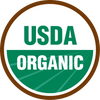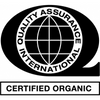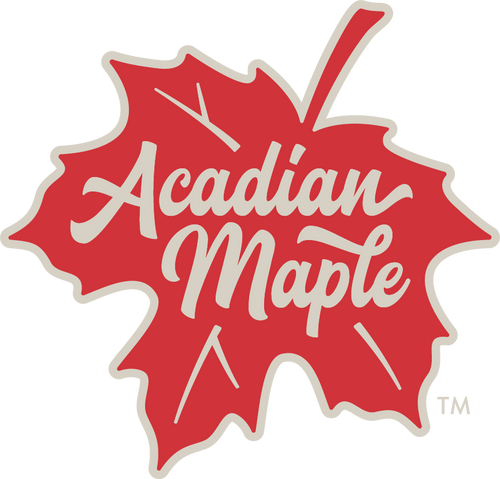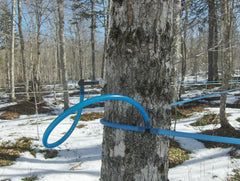Organic Versus Conventional Maple Syrup
Is there a difference? This is a common question we get asked. To answer your question, there is a difference. Let's dig into it and you can find out more.
What Does Organic Mean?
Organic food products are grown naturally using few or no chemicals, pesticides, radiation, or genetic engineering.
The pure, in pure maple syrup, means that there is only one ingredient in each bottle you have in the fridge, that being maple syrup and it comes from trees. So surely it's pure by its very nature.
What are the Differences with Organic Maple Syrup?
There are many key differences between the organic and non-organic maple syrup. These differences include where the maple trees are tapped, how the maple trees are tapped, how the sap is collected and stored, and so on. I bet you didn't think maple syrup could be complicated?
There are more restrictions on how Organic Maple Syrup can be produced compared to conventional maple syrup. Although different regulatory agencies require and impose different restrictions, there are a few common items that differentiate organic maple syrup and non-organic maple syrup (conventional).
Organic Trees and the Forest
During the Maple Syrup season, maple syrup producers have selected sites where there is an abundance of maple trees. Small operators have 2000-3000 taps on their sites, while larger operators may have over 150,000 taps on one site. Organic maple syrup producers must ensure the presence of 15% companion species, which means at least 15% of the trees in their woodlot must not be maple.
Organic maple syrup producers must also keep maps of all their sites, as well as buffers if they are close to farmland or Christmas tree lots using prohibited materials such as pesticides.
Organic Fertilizers and Trees
Organic maple syrup producers are not allowed to cut undergrowth, and their fertilizer use is limited to the occasional use of wood ash, lime, or other allowed fertilizers. Tubing to collect maple syrup must be installed with protectors to avoid damaging maple trees.
There are limitations to the size of maple trees that organic maple syrup producers can tap, the trees must have a diameter larger than 20cm at chest height in order to be tapped.
Organic Cleaning and Chemicals
The only disinfectant allowed, which ensures there are no bacteria in the tap hole when the tree is tapped, for organic maple syrup producers is food grade ethyl alcohol.
Maple syrup producers normally use a reverse osmosis system to process sap before boiling. This cuts down on labour as well as fuel costs. Organic maple syrup producers must ensure that no mineral components of sap are removed during this process. This is generally achieved through the limitation of concentration of the maple sap.
During the time that the sap is boiled, organic maple syrup producers must use only stainless steel pans, and only certified organic oils as de-foamers. During the maple syrup season, only approved chemicals may be used for cleaning these pans, and vinegar or fermented sap may be used at the end of the maple syrup season.

Organic Paperwork and Record Keeping
Production plans, production records, complaint logs, sales records, inventory records, product traceability, and sitemaps are all required for organic maple syrup producers to keep on file. There is also an annual audit that takes place by the certification body.
This paperwork and record keeping usually constitutes the bulk of the extra work and the eventual cost that is passed on to the consumer in the form of a higher price.
Organic Certification For Maple Syrup
Even if you follow all the best practices and rules. You can't just say your maple syrup is organic. If it is to be called organic maple syrup, then it must be certified as such by an organic certification body that can certify organic maple syrup.
How do you know if your maple syrup is certified organic? It's easy. Just look for an organic symbol like these:



Organic certification is done by a certification body. There are many certification bodies. For maple syrup, some of the common ones are Quality Assurance International and EcoCert. The organization that grants the certification will often have their logo on the organic maple syrup packaging as well. Ours looks like this:

Certification bodies are the organizations that perform organic audits on maple syrup farms and facilities that are certified organic maple syrup production.
Maple Syrup Organic Audit
So what does organic certification of maple syrup entail? Usually, it means an audit by an independent auditor. The certification body will usually contract out their auditing tasks to independent organic auditors.
These objective third-party auditors will usually visit the facility once a year.
What is involved in an organic audit? This can vary. but generally, the auditor will do an inspection of the physical location and interview employees to ensure they know the policies and procedures for the production of organic maple syrup.
Usually, the physical audit needs to take place when some sort of organic processing or production is taking place.
Organic maple syrup auditors will then look at paperwork and maple syrup production records.
A mass balance is usually performed during an organic maple syrup audit. This means the maple syrup supplier or producer need to show how many kilograms of maple syrup were produced versus what was sold.
Also, a traceback of the maple syrup supply chain is usually performed to show that the processor has all the necessary certificates and paperwork on file for all the organic maple syrup and inputs through each step.
Conclusion
In all, pure maple syrup is organic in the way that is naturally grown and produced with no chemicals.
But as you can see there are some differences and extra steps involved in organic maple syrup production.
Organic maple syrup is certified organic because there are specific guidelines and regulations that are followed during the process of producing maple syrup to ensure that no chemicals or other inorganic products are used during production.
This extra work, which creates an audit-able paper trail is what demands the higher cost for certified organic pure maple syrup.
At Acadian Maple, we sell Pure Maple Syrup as well as Certified Organic Pure Maple Syrup. Our organic maple syrup is certified by Quality Assurance International.


